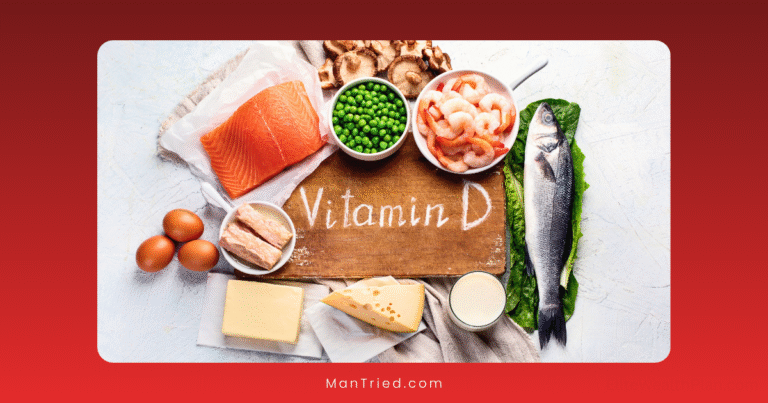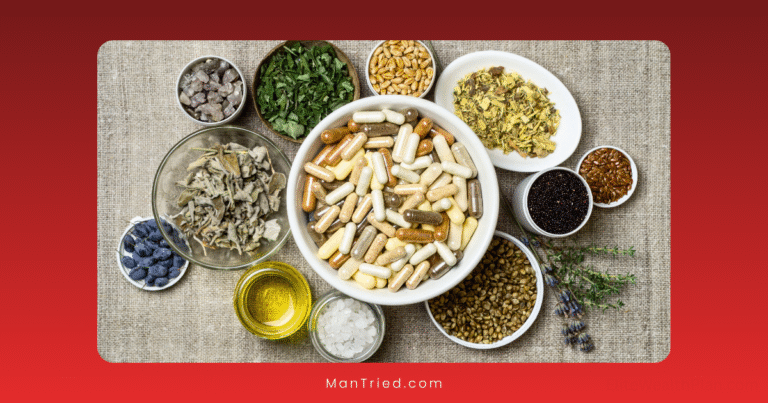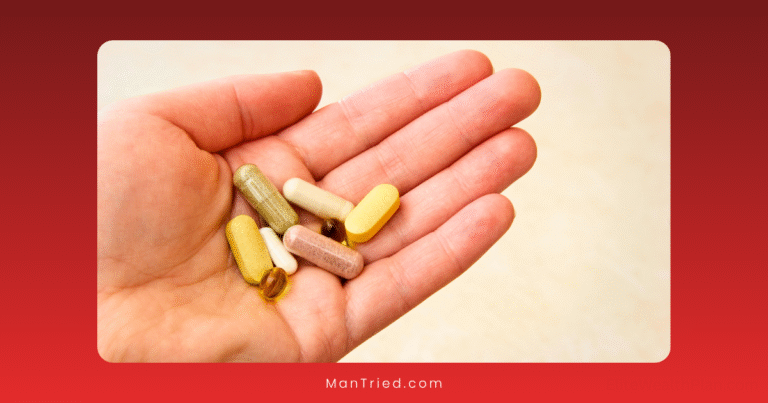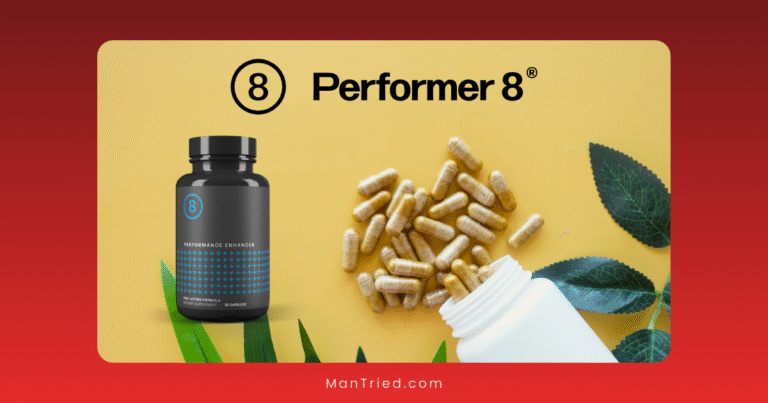Zinc for Sexual Health: Food Sources vs. Supplements
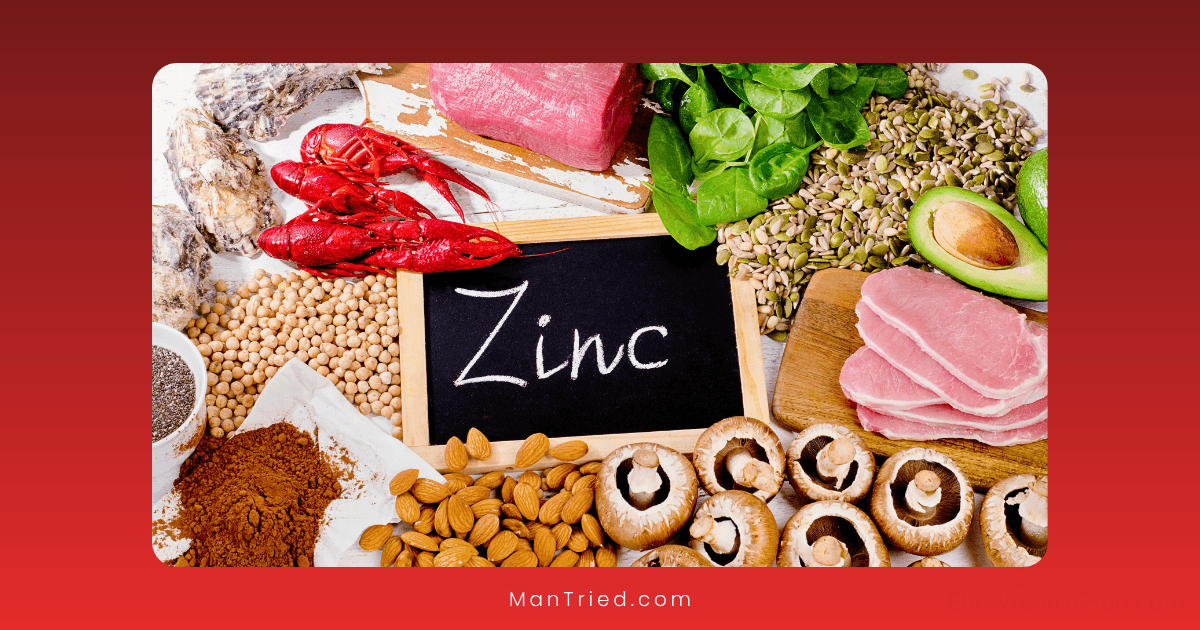
When it comes to sexual health, we often focus on psychological factors or prescription medications. However, one of the most overlooked contributors to sexual wellbeing might be sitting in your kitchen cabinet or medicine drawer: zinc. This essential mineral plays a crucial role in multiple aspects of sexual function, from testosterone production to sperm quality.
But with options ranging from oysters to over-the-counter supplements, what’s the best way to ensure you’re getting enough zinc for optimal sexual health? Let’s dive into the science behind zinc’s benefits and compare the effectiveness of food sources versus supplements.
The Science Behind Zinc and Sexual Health
Before weighing your options for zinc intake, it’s important to understand exactly how this mineral impacts sexual function.
Testosterone Production: The Foundation of Desire
Zinc plays a fundamental role in the production and regulation of testosterone, the primary male sex hormone that drives libido in both men and women (though in different amounts).
Research has consistently shown that zinc deficiency can lead to reduced testosterone levels. According to a 2021 study published in ScienceDirect, there’s a significant relationship between zinc levels and sex hormones, with zinc deficiency correlating with lower testosterone production.
The connection is so strong that zinc supplementation has been shown to boost testosterone levels in men with deficiencies, potentially improving sexual desire and function.
Erectile Function: Beyond Just Desire
Zinc doesn’t just influence desire—it also plays a key role in the physical aspects of sexual function, particularly erectile capacity in men.
A 2023 study published in PMC demonstrated that zinc supplementation improved erectile function in animal models by:
- Increasing nitric oxide production (essential for blood vessel dilation)
- Enhancing cyclic guanosine monophosphate (cGMP) levels (crucial for sustaining erections)
- Reducing oxidative stress in penile tissue
These findings help explain why men with erectile dysfunction (ED) often have lower zinc levels than those without ED. According to AlloHealth, clinical observations from over 250,000 consultations showed that 62% of men under 35 with ED also had low testosterone or stress-linked symptoms influenced by zinc levels.
Fertility and Sperm Quality: The Reproductive Connection
Perhaps zinc’s most well-documented sexual health benefit relates to male fertility and sperm quality.
A comprehensive review in 2024 highlighted that:
- Seminal plasma zinc levels are 85-90 times higher than blood plasma levels
- Zinc is essential for normal testicular development and spermatogenesis
- Zinc deficiency is associated with reduced sperm count, motility, and normal morphology
- Supplementation has been shown to significantly improve sperm parameters in deficient men
This is particularly relevant considering that approximately 17% of the global population suffers from zinc deficiency, potentially impacting fertility for millions of couples.
Food Sources of Zinc: Nature’s Sexual Health Boosters
Now that we understand zinc’s importance for sexual health, let’s examine the natural food sources that can boost your intake.
Seafood: Nature’s Zinc Powerhouses
When it comes to dietary zinc, nothing compares to certain seafood options:
- Oysters: The undisputed zinc champions, providing an astounding 32mg per 3-ounce serving—nearly 300% of the daily recommended intake. Their reputation as an aphrodisiac may actually have scientific backing!
- Crab and Lobster: These crustaceans offer impressive zinc content, with about 6.5mg per 3-ounce serving.
- Other Seafood: Fish like salmon and sardines provide moderate zinc levels along with beneficial omega-3 fatty acids that support overall vascular health—important for sexual function.
Meat and Poultry: Reliable Zinc Sources
Animal proteins are generally excellent sources of bioavailable zinc:
- Beef: Contributes approximately 20% of zinc intake in the American diet, with a 3-ounce serving of beef chuck roast providing about 7mg.
- Pork: A 3-ounce serving of pork loin contains around 2.9mg of zinc.
- Chicken: Dark meat chicken provides about 2.4mg per 3-ounce serving.
These sources not only supply zinc but also contain L-arginine and L-carnitine, amino acids that support blood flow and can enhance sexual function.
Plant-Based Options: Challenges and Opportunities
For vegetarians and vegans, zinc intake requires more careful planning:
- Legumes: Beans, lentils, and chickpeas contain moderate amounts of zinc (about 1-2mg per cup).
- Nuts and Seeds: Pumpkin seeds are standouts, offering 2.2mg per ounce, while cashews, almonds, and walnuts provide smaller amounts.
- Whole Grains: Wheat germ, quinoa, and fortified cereals can contribute to zinc intake.
However, plant sources come with an important caveat: they contain phytates, compounds that can bind to zinc and reduce its absorption by up to 80%. This makes the zinc in plant foods significantly less bioavailable than animal sources.
Zinc Supplements: Types, Absorption, and Effectiveness
For those who struggle to get enough zinc through diet alone, supplements offer an alternative approach. But not all zinc supplements are created equal.
Common Types of Zinc Supplements
Several forms of supplemental zinc are available, each with different properties:
- Zinc Gluconate: One of the most common and affordable forms, with good absorption rates.
- Zinc Citrate: Similar to gluconate in absorption efficiency, with slightly better taste properties.
- Zinc Picolinate: Often marketed as more bioavailable, though evidence is mixed.
- Zinc Oxide: Less expensive but significantly less absorbable than other forms.
- Zinc Glycinate: An amino acid chelate form that may have superior absorption and cause less digestive discomfort.
Absorption Rates: The Bioavailability Factor
According to a 2022 study in the Journal of Nutrition, absorption rates vary significantly between supplement forms:
- Zinc citrate: 61.3% absorption
- Zinc gluconate: 60.9% absorption
- Zinc oxide: 49.9% absorption
These differences become particularly important when treating deficiencies or addressing specific sexual health concerns.
Dosage Considerations for Sexual Health
For general health, the Recommended Dietary Allowance (RDA) for zinc is:
- 11mg daily for adult men
- 8mg daily for adult women
However, for addressing sexual health concerns, slightly higher doses may be beneficial:
- For erectile dysfunction: 15-30mg daily (according to AlloHealth)
- For improving sperm parameters: 15-40mg daily
- For boosting testosterone in deficient individuals: 30mg daily
It’s crucial not to exceed the upper limit of 40mg daily, as excess zinc can cause side effects and interfere with copper absorption.
Food vs. Supplements: The Comparative Analysis
With both food sources and supplements offering pathways to zinc sufficiency, how do they compare for sexual health benefits?
Bioavailability: The Absorption Equation
When it comes to how efficiently your body can use zinc, several factors come into play:
- Animal vs. Plant Sources: Zinc from animal products (particularly oysters and red meat) has significantly higher bioavailability than plant sources, with absorption rates of 20-40% compared to 10-15% from plant foods.
- Supplement Form Matters: As mentioned earlier, zinc citrate and gluconate are absorbed at rates of approximately 61%, while zinc oxide lags at about 50%.
- Meal Context: Taking zinc supplements with a meal containing protein enhances absorption but taking them with high-phytate foods (whole grains, legumes) reduces absorption.
- Competing Minerals: High-dose iron supplements (≥25mg) can reduce zinc absorption when taken simultaneously.
Synergistic Nutrients: The Whole Food Advantage
Food sources of zinc offer benefits beyond just the mineral itself:
- Seafood: Contains omega-3 fatty acids that support cardiovascular health and blood flow—essential components of sexual function.
- Meat: Provides protein, B vitamins, and other minerals that support energy and hormone production.
- Nuts and Seeds: Offer healthy fats, fiber, and antioxidants that protect against oxidative stress, which can impair sexual function.
These complementary nutrients create a synergistic effect that isolated supplements typically can’t match.
Consistency and Convenience: The Practical Perspective
Practical considerations also influence the food versus supplement decision:
- Dietary Preferences: Vegetarians and vegans may struggle to obtain sufficient bioavailable zinc from food alone.
- Cost Comparison: While supplements may seem more economical, nutrient-dense foods provide multiple health benefits beyond just zinc.
- Consistency: Supplements offer precise dosing and convenience, which may improve compliance for those needing therapeutic levels.
Special Considerations for Different Populations
The optimal approach to zinc intake varies depending on individual circumstances:
For Men with Erectile Dysfunction
Men experiencing ED may benefit from a combined approach:
- Increasing zinc-rich foods, particularly oysters and red meat
- Considering a supplement containing 15-30mg of zinc (preferably citrate or gluconate)
- Addressing other lifestyle factors that influence erectile function (exercise, stress management)
According to clinical observations from AlloHealth, men who combined zinc supplementation with stress management and lifestyle improvements saw the best long-term results for erectile function.
For Those Concerned About Fertility
Couples trying to conceive should pay special attention to zinc:
- Men should aim for the higher end of the recommended intake range (15-40mg daily)
- Focus on food sources with high bioavailability (oysters, meat)
- Consider a zinc supplement if dietary intake is insufficient
- Maintain seminal zinc levels between 100-200 mg/L, which research indicates is optimal for fertility
For Vegetarians and Vegans
Plant-based eaters face special challenges with zinc intake:
- Consume more zinc than the RDA to compensate for lower bioavailability (approximately 50% more)
- Use food preparation techniques that reduce phytate content (soaking, sprouting, fermenting)
- Consider zinc supplements, particularly chelated forms like zinc glycinate that may cause less digestive discomfort
- Monitor for signs of deficiency such as reduced taste/smell, poor wound healing, or decreased immunity
Potential Risks and Side Effects
While zinc is essential for sexual health, more isn’t always better:
Supplement Risks
Excessive zinc supplementation (above 40mg daily) can lead to:
- Nausea, vomiting, and digestive discomfort
- Reduced copper absorption, potentially leading to anemia
- Impaired immune function
- Altered cholesterol levels
Drug Interactions
Zinc can interact with several medications:
- Antibiotics (reduced absorption of both zinc and the antibiotic)
- Penicillamine (reduced absorption of zinc)
- Diuretics (increased zinc excretion)
- Blood pressure medications (potential interference)
Always consult with a healthcare provider before starting zinc supplementation, especially if you’re taking other medications.
The Integrated Approach: Combining Food and Supplements
For optimal sexual health, many experts recommend an integrated approach:
- Start with diet: Focus on incorporating zinc-rich foods into your regular meals, particularly those with high bioavailability.
- Test, don’t guess: Consider getting your zinc levels tested, especially if you have sexual health concerns or risk factors for deficiency.
- Supplement strategically: If dietary intake is insufficient or you have confirmed low levels, choose a high-quality supplement in a well-absorbed form.
- Address the whole picture: Remember that sexual health depends on multiple factors—zinc is important but works best as part of a comprehensive approach that includes exercise, stress management, and overall nutrition.
Conclusion: Finding Your Optimal Zinc Strategy
The evidence clearly shows that zinc plays a crucial role in sexual health, from testosterone production and erectile function to fertility. While both food sources and supplements can help maintain adequate levels, they each offer distinct advantages and limitations.
For most people, a “food first” approach makes sense—focusing on zinc-rich foods like oysters, other seafood, meat, and plant sources while being mindful of bioavailability factors. Supplements serve as a valuable backup strategy for those with increased needs, absorption challenges, or confirmed deficiencies.
Remember that the goal isn’t simply to maximize zinc intake but to achieve optimal levels that support sexual health without risking toxicity. By understanding the science behind zinc’s benefits and the relative merits of different sources, you can make informed choices that enhance your sexual wellbeing naturally and effectively.
Whether you opt for a dozen oysters, a zinc gluconate tablet, or a strategic combination of both, ensuring adequate zinc intake represents one of the simplest yet most effective nutritional strategies for supporting sexual health.

